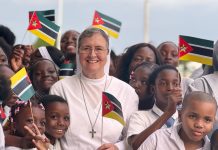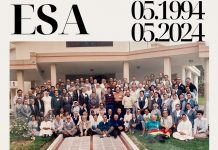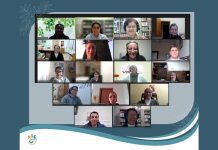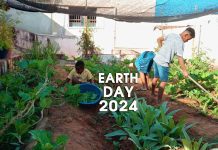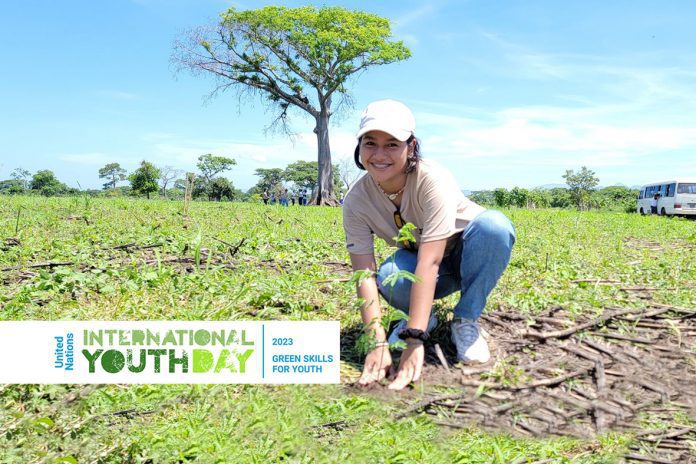Rome (Italy). International Youth Day is celebrated on 12 August 2023, established by the United Nations General Assembly as an opportunity to give young people a voice and offer them significant participation in political and social life.
The theme of the 2023 Day is “Green skills for young people: Towards a sustainable world”, to underline the need to develop “green skills”, in a historical time in which we are trying to undertake a green transition. Transitioning to an environmentally sustainable and climate-friendly world is critical, not only for responding to the global climate crisis, but also for achieving the Sustainable Development Goals (SDGs). Green skills are therefore, “the knowledge, skills, values, and attitudes necessary to live, develop, and support a sustainable and resource-efficient society.”
These include technical knowledge and skills that enable the effective use of green technologies and processes in the workplace, as well as soft skills that draw on a range of knowledge, values, and attitudes to facilitate environmentally sustainable decisions in work and in life. Due to their interdisciplinary nature, green skills are regarded as ‘skills for the future’ and while they are relevant to people of all ages, they are of greater importance to younger people who will experience the direct consequences of climate change. Furthermore, at this age of life, young people are in the learning phase and can contribute to the green transition more continuously.
To celebrate the 2023 Day, the United Nations Department of Economic and Social Affairs (DESA) organized a webinar for a comparison on young people’s green skills.
The IIMA Human Rights Office, in collaboration with VIDES International, supports this initiative to promote youth engagement in tackling environmental challenges and advancing the youth agenda and the Sustainable Development Goals (SDGs) of the United Nations 2030 Agenda.
IIMA and VIDES International are therefore implementing the “Youth to Reshape the World” project, in collaboration with young activists from European Countries. As part of this project, an information session was held on 8 June 2023, to discuss how to support young people in their environmental projects and, more specifically, how to promote meaningful youth participation in global environmental decision-making processes in their own Countries. This project is also particularly timely because, in accordance with its latest resolution on youth and human rights, the United Nations Human Rights Council (HRC) will hold a roundtable on this issue on 26 September at the Palais des Nations in Geneva. (Further information)
In the Institute of the Daughters of Mary Help of Christians, following the Resolution of the 23rd General Chapter on integral ecology, there is an increase in initiatives in which young people are protagonists in expressing sensitivity on these issues and in the development of green skills oriented towards a sustainable future.
An example is the SOS Somos Solidaridad Campaign of the Central American Province of SS. Salvatore (CAM), in which 18 FMA Houses from the three Countries that make it up – El Salvador, Honduras, and Guatemala – are united in a network, through ecological actions and projects carried out in schools and educational environments, in order to be motivators of change.
The “scores” and “badges” obtained by the different realities are presented on the Campaign web page. The initiative is in fact underway and lasts four months – from June to September 2023 – with monthly integral ecology “challenges”. Completing all challenges within the time limit earns Integral Ecology Badges. At the bottom of the page there are links to social networks, where the individual realities present their projects and initiatives through photos and videos.
These are concrete ways to encourage young people to implement visible actions and to become protagonists by giving the best of themselves. It also strengthens team spirit aimed at achieving sustainable objectives, involving families and collaborators in sustainable communities open to the world.
“What kind of world do we want to pass on to those who will come after us, to the children who are growing up? When we ask ourselves about the world we want to leave, we refer above all to its general orientation, its meaning, its values. If this basic question does not pulsate in them, I do not believe that our ecological concerns will be able to obtain important effects” (Pope Francis, LS 160).


